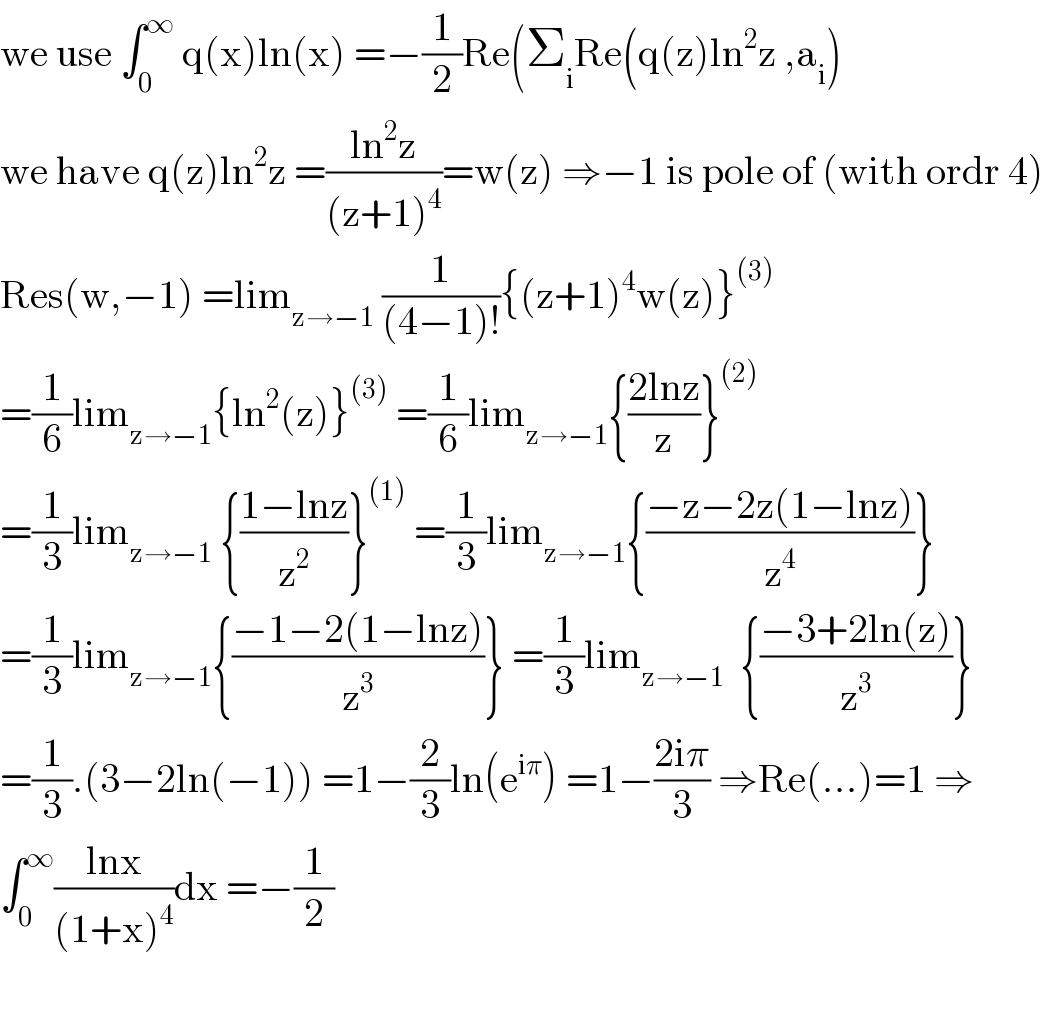
Question and Answers Forum
Question Number 108749 by mathmax by abdo last updated on 19/Aug/20

Answered by mnjuly1970 last updated on 19/Aug/20
![f(a)=∫_0 ^( ∞) (x^a /((1+x)^4 ))⇒goal:=f^( ′) (0) f^( ′) (a)=(d/da)[β(a+1,3−a)]=(1/6)(d/da)[Γ(a+1).Γ(3−a)] =(1/6) [Γ^( ′) (1).Γ(3)−Γ^( ′) (3)Γ(1)] =(1/6)[−2γ−2ψ(3)]=(1/6)[−2γ−2((3/2) − γ)] ((−1)/2) ....](Q108778.png)
Commented by mathmax by abdo last updated on 19/Aug/20

Commented by mnjuly1970 last updated on 19/Aug/20

Answered by mathmax by abdo last updated on 19/Aug/20

